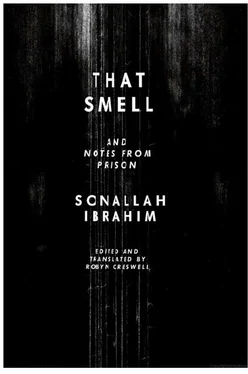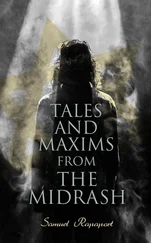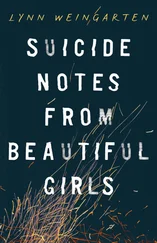Sonallah Ibrahim - That Smell and Notes From Prison
Здесь есть возможность читать онлайн «Sonallah Ibrahim - That Smell and Notes From Prison» весь текст электронной книги совершенно бесплатно (целиком полную версию без сокращений). В некоторых случаях можно слушать аудио, скачать через торрент в формате fb2 и присутствует краткое содержание. Год выпуска: 2013, Издательство: New Directions, Жанр: Современная проза, на английском языке. Описание произведения, (предисловие) а так же отзывы посетителей доступны на портале библиотеки ЛибКат.
- Название:That Smell and Notes From Prison
- Автор:
- Издательство:New Directions
- Жанр:
- Год:2013
- ISBN:нет данных
- Рейтинг книги:4 / 5. Голосов: 1
-
Избранное:Добавить в избранное
- Отзывы:
-
Ваша оценка:
- 80
- 1
- 2
- 3
- 4
- 5
That Smell and Notes From Prison: краткое содержание, описание и аннотация
Предлагаем к чтению аннотацию, описание, краткое содержание или предисловие (зависит от того, что написал сам автор книги «That Smell and Notes From Prison»). Если вы не нашли необходимую информацию о книге — напишите в комментариях, мы постараемся отыскать её.
Notes from Prison
That Smell and Notes From Prison — читать онлайн бесплатно полную книгу (весь текст) целиком
Ниже представлен текст книги, разбитый по страницам. Система сохранения места последней прочитанной страницы, позволяет с удобством читать онлайн бесплатно книгу «That Smell and Notes From Prison», без необходимости каждый раз заново искать на чём Вы остановились. Поставьте закладку, и сможете в любой момент перейти на страницу, на которой закончили чтение.
Интервал:
Закладка:
Can I unify the personal with the objective in my writing? Set off in three directions at the same time: subject, style, and form.
My father taught me to put no store in anything whose only justification was custom. I learned from him that I must think about everything for myself, on my own terms.
Naguib Mahfouz’s style in The Search is the same style I used last year in my own writing. It’s also derived from Joyce and Woolf. Mahfouz’s novel, of which only four parts have so far appeared, will be the beginning of the modern Egyptian novel.
December
“I projected The Battleship Potemkin as a consecutive series of events, a dramatic totality. The secret of the work’s unity lies in my having arranged the events according to the laws of tragedy, a classical tragedy in five acts. I divided the events of the film into five acts and in each act treated specific events, whose meaning was dependent on the events that preceded and followed them, with the stipulation that each shot add something new to what came before. Each shot has a particular meaning and the general idea of the film does not lie in the film itself, but is rather created by the spectator through his tracking of the events, which were selected from among the facts of the historical narrative.” “A Director’s Thoughts,” Sergei Eisenstein.
Friday, December 20, 1963. How wonderful suddenly to hear a word of praise directed at something of yours which no one else found value in. A. said something that’s turned my head; I don’t know what to say or to think. It’s a beautiful thing to have someone call you a kind of genius, or to say that you will make something truly new. But is it true? I’ve been searching for the new, which is why I was so irritated to discover Naguib Mahfouz using stream-of-consciousness in The Search , just as I had. Well then, will I repeat him?. Must look for something new. I have just realized that stream-of-consciousness, in the novel and in the short story, is on the march all over the world, including Egypt. And I’ve become irritated by all those ready-made phrases, now turned into fossils: He walked, he went, he said. Can our country innovate in the novel on a world scale?
A.’s words to the effect that man had discovered the scientific method and used it in his life, and that the method must be reflected in his literature.
Realism in art and literature was a new vision of the world following the transformation of material, social, and political conditions in the eighteenth and nineteenth centuries, specifically the industrial revolution. The writer no longer wrote to save mankind from its boredom, nor to help them pass the time. He aimed his discoveries at the darkness surrounding his field of vision. He was enriched by new movements in morality and politics, which left their marks on literary and artistic groups: partisan literature and realism → psychological realism, historical realism, social realism, materialist realism, socialist realism, revolutionary realism.
All these schools represented a persistent attempt to reach reality, as well as a quest for new forms. Surrealism was not a mode of pessimism nor escapism, as frivolous people suppose. It was another attempt, motivated by the nightmare of World War I, to discover reality, which had abruptly demonstrated the impotence of previous schools to articulate and uncover it. Socialist realism played this same role in the age of science. But it failed due to intellectual stagnation, Leftism, and an “unscientific” approach to reality (its neglect of contradictions, its gaudy picture-painting, and its commitment to a style and technique that were out-of-date). Scientific socialism is a science, not a method. There is no commitment. There is only the issue of the scientific method. Art is opposed to daily politics. It takes a long, comprehensive view. Trial and error. It is not a tool, but open to all newness. Lenin and the freedom of the imagination.
Life will have no meaning unless we stop at once and look at it and see all the things we have been blind to. unless we look at everything that lies below the surface, unless our curiosity is fired by the miracle of the everyday.
Toward a new movement in the novel and the short story. Why is there a crisis? We don’t have a long history in this art form. Our reality has changed in bewildering fashion; it’s no longer possible to represent this reality using the old methods. The development of this art form cannot happen in Egypt as it happened in Europe. We need a true leap forward.
“The directors of the New Wave face up to the absence of conventional drama. They put characters on display, but do not attempt to have them make sense. Their films are entirely free of the structure of conventional drama. So long as the camera is no longer constrained to tell a continuous story with beginning, middle, and end, it can represent what it sees, just as in life. For life is not orderly, its unity is incomprehensible, its one continuity is its principle character, the axis of life and its events.” Alexandre Astruc in Le Monde , August 12, 1959.
“Why Neorealism Failed,” Eric Rhode, translated by Ata’ al-Naqqash for al-Katib , April 1963: Moravia believes neorealism ended because it fulfilled its task, which was “to respond to the pressing need, after the war, to account for every kind of deficiency brought about by defeat and national disaster.” Neorealism offered more than merely spiritual succor. It was an attempt once again to go back to the beginning: What is man? What are his rights and responsibilities?
— “The reality buried under myths flowered once again. Cinema remade the world. Here was a tree, an old man, a house, a man eating, a man sleeping, a man screaming.” Cesar Zavattini.
— Principles of the movement:
1) An end to naïve clichés.
2) An end to imaginary and grotesque fabrications.
3) An end to historical narratives and the adaptations of novels and stories into films.
4) An end to the rhetoric that represented Italians in general as on fire with the same noble sentiments. making all of them equally aware of all the problems of life.
— Zola defined the naturalist writer: “His great concern is to gather material and to find out what he can do in this world he wishes to describe. When this material is collected, the novel will spontaneously find its form. The writer has only to gather the facts and put them into a realistic frame. The oddities of the story must not claim his attention. On the contrary, the more the narrative is shared and universal, the better. ”
— Umberto D is the closest Zavattini has come to his ideal of inserting 90 consecutive minutes from the life of man into a film. Here we are confronted with a paradox of neorealist film, which presents, at moments, a reality broken off from life and therefore as meaningless as the realism of Alain Robbe-Grillet’s Le Voyeur . But this should not surprise us, because it is the logical development of Zola’s idea of collecting the facts and then seeing what significance or importance they bear in and of themselves.
— Georg Lukacs says of Zola: “Perhaps no one has been able to paint so precisely and suggestively the exterior trappings of modern life. But merely the exterior trappings. These constitute the enormous backdrop in front of which minuscule people come and go, acting out with random gestures their accidental lives. Zola was unable to discern what the great realists such as Balzac, Tolstoy, or Dickens, had achieved by representing social institutions as human relations, and social phenomena as composed of these relations. ”
— Description and analysis is substituted for epic situations and plots.
For realism, as for Aristotle, the characteristic procedure of art is its method of imitating an action.
Читать дальшеИнтервал:
Закладка:
Похожие книги на «That Smell and Notes From Prison»
Представляем Вашему вниманию похожие книги на «That Smell and Notes From Prison» списком для выбора. Мы отобрали схожую по названию и смыслу литературу в надежде предоставить читателям больше вариантов отыскать новые, интересные, ещё непрочитанные произведения.
Обсуждение, отзывы о книге «That Smell and Notes From Prison» и просто собственные мнения читателей. Оставьте ваши комментарии, напишите, что Вы думаете о произведении, его смысле или главных героях. Укажите что конкретно понравилось, а что нет, и почему Вы так считаете.












